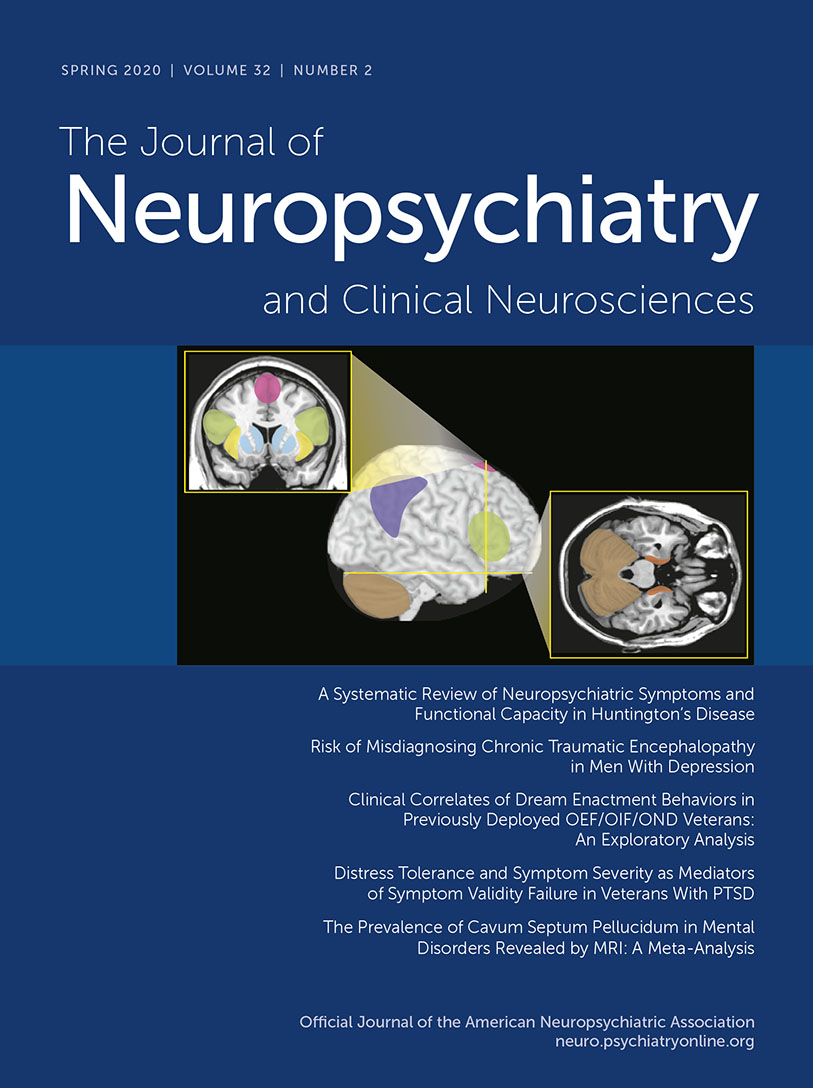Serum and CSF Anti-NMDAR Antibody Testing in Psychiatry
Abstract
Objective:
The authors examined and compared the clinical presentation of CSF positive and negative N-methyl-d-aspartate receptor (NMDAR) antibody.
Methods:
The investigators performed a retrospective chart review of NMDAR-antibody-positive cases (serum or CSF) involving patients presenting to psychiatric services from 2010 to 2018 in Queensland, Australia. Presentation, progress, investigations, and efficacy of treatment are detailed.
Results:
There were 24 serum or CSF NMDAR-antibody-positive cases and three equivocal serum results. High rates of prodromal cognitive deficits, catatonia, speech disturbance, and antipsychotic sensitivity were observed in the 16 CSF NMDAR-antibody-positive case patients and two CSF NMDAR-antibody-negative case patients, all evident before neurological deterioration with seizures, movement disorder, and autonomic disturbance occurring in the weeks following admission. The majority of these patients (N=17) were treated successfully with immunomodulatory therapy. The nine remaining patients, who were CSF NMDAR antibody negative or equivocal, did not demonstrate any of these features and improved with psychiatric care alone.
Conclusions:
These findings suggest that traditional psychiatric care may be appropriate for patients with isolated psychiatric symptoms who have positive serum NMDAR testing when CSF is negative and there are no key clinical features such as cognitive deficits, catatonia, speech disturbance, and antipsychotic sensitivity. However, if these key features are present, a trial of immunomodulatory treatment should be considered with repeated examination of CSF for neuronal antibodies.



